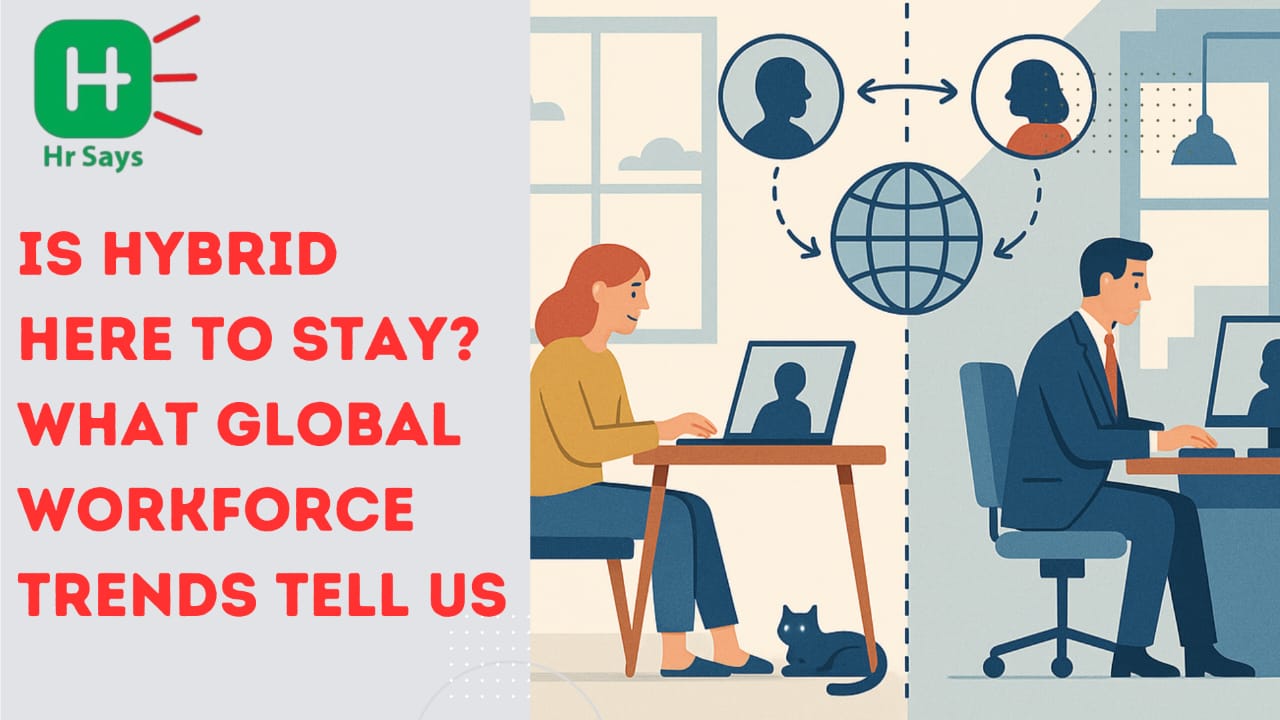What happens when the office doesn’t feel necessary anymore? When homes become cubicles, and meetings happen in pajamas?
That’s where the world found itself in 2020. And now, even after restrictions have eased, many haven’t gone back to “normal.” But does that mean hybrid work is here to stay?
Maybe. Maybe not.
The Shift Was Never Planned
Offices closed. Laptops opened. The shift to remote was sudden—forced, not chosen.
But employees adapted. Productivity didn’t crash. Commutes vanished. People got time back.
Companies noticed.
By 2021, “flexibility” had a new meaning. Hybrid work began—part home, part office. A middle path. Less chaos. More control.
But cracks began to show too.
Global Trends Say This:
Governments, CEOs, and workers have all spoken. The verdict? Mixed.
● In the U.S.: Major firms like Apple and Google called teams back—partially. Employees pushed back. Some left. Some complied. The hybrid model stayed—3 days in, 2 days out.
● In Europe: Countries like Germany and the Netherlands adopted hybrid laws. Right to request remote work? Legalized. But not everyone uses it.
● In the GCC (Gulf Cooperation Council): Hybrid is being tested, not trusted yet. In sectors like tech and media, flexibility is growing. But in public sectors, in-office culture still dominates.
Across regions, it’s clear: No one-size-fits-all exists. But the desire for balance is universal.
Why Hybrid Works — and Doesn’t
It sounds ideal. But real life is messier.
What works:
● Less burnout
● More autonomy
● Lower real estate costs
● Access to wider talent pools
What doesn’t:
● Collaboration gaps
● “Zoom fatigue”
● Unequal access to opportunities
● Weaker work culture
And leadership trust? Still a work in progress.
The Employee Is Watching
People now weigh jobs differently. Not just by salary, but by schedule. A rigid office-only job? Some just won’t apply.
They ask:
● Can I pick up my child at 4 PM?
● Can I skip a 90-minute commute?
● Can I work from another city next month?
If the answer is “no,” they often move on.
The Bottom Line
Hybrid isn’t perfect. It isn’t a magic fix. But it’s not a fad either.
It came quietly. And for many, it brought sanity.
Offices won’t vanish. But their purpose has changed. It’s no longer where work starts. It’s where people connect.
So, Is Hybrid Here to Stay?
It depends.
● On trust.
● On leadership.
● On tools.
● On culture.
But most of all—on choice.
And that’s the new standard the workforce is demanding.

 The hybrid work model has become more than a pandemic fix. It’s now a debate. As businesses worldwide rethink office culture, the question lingers—will hybrid work remain the norm or quietly fade away?
The hybrid work model has become more than a pandemic fix. It’s now a debate. As businesses worldwide rethink office culture, the question lingers—will hybrid work remain the norm or quietly fade away?








.jpeg)
.jpeg)

.jpeg)





.jpeg)



.jpeg)

.jpeg)



